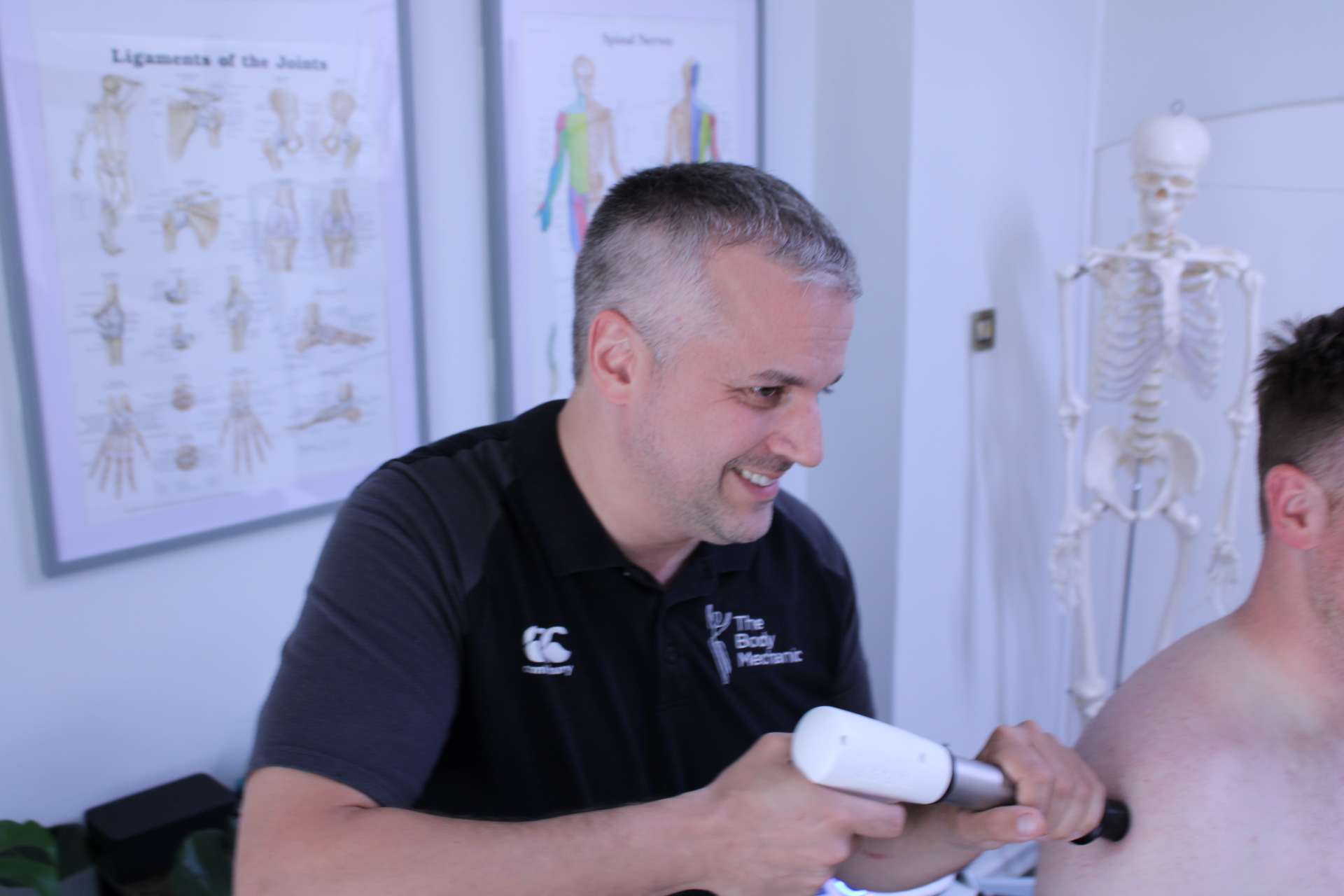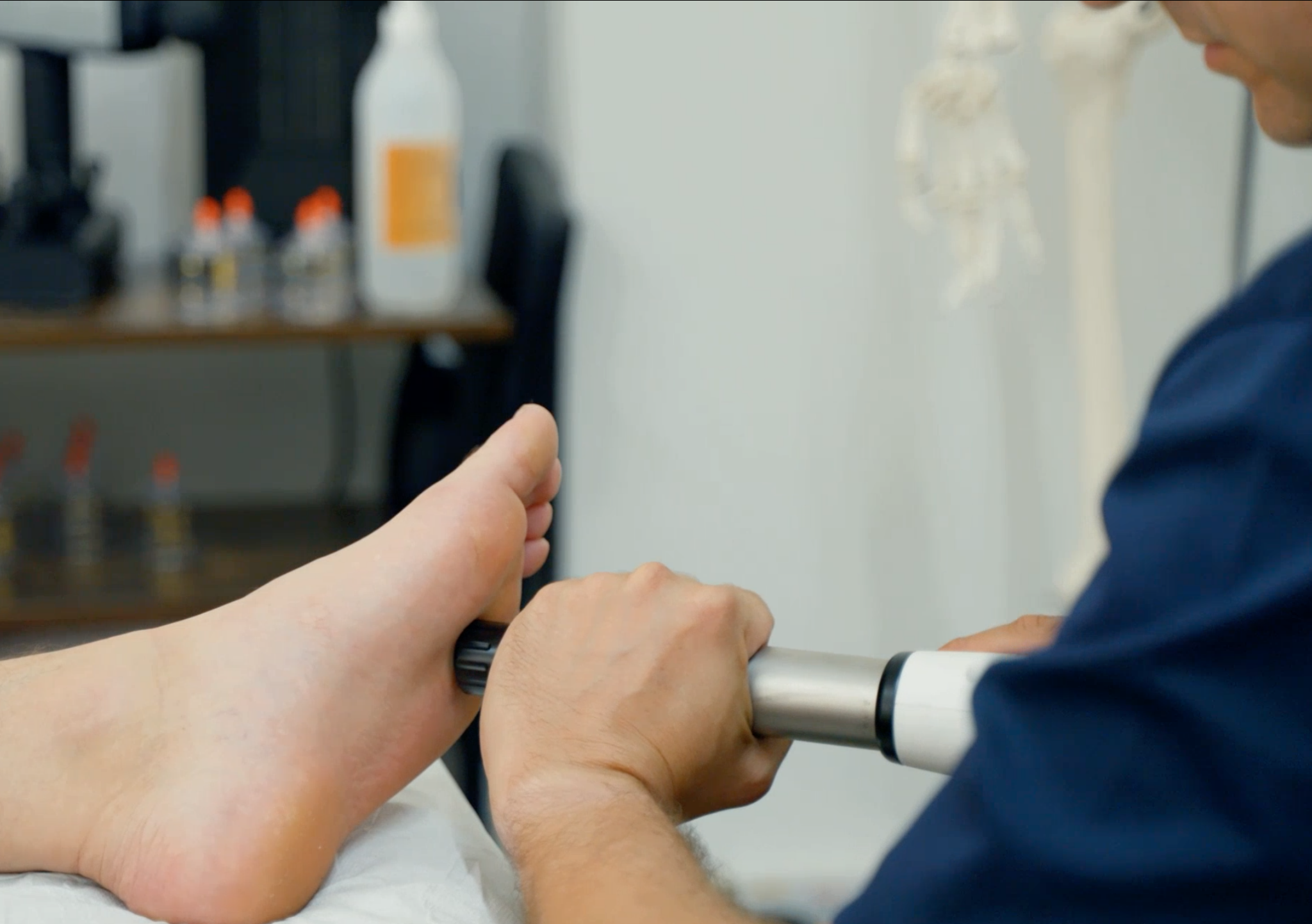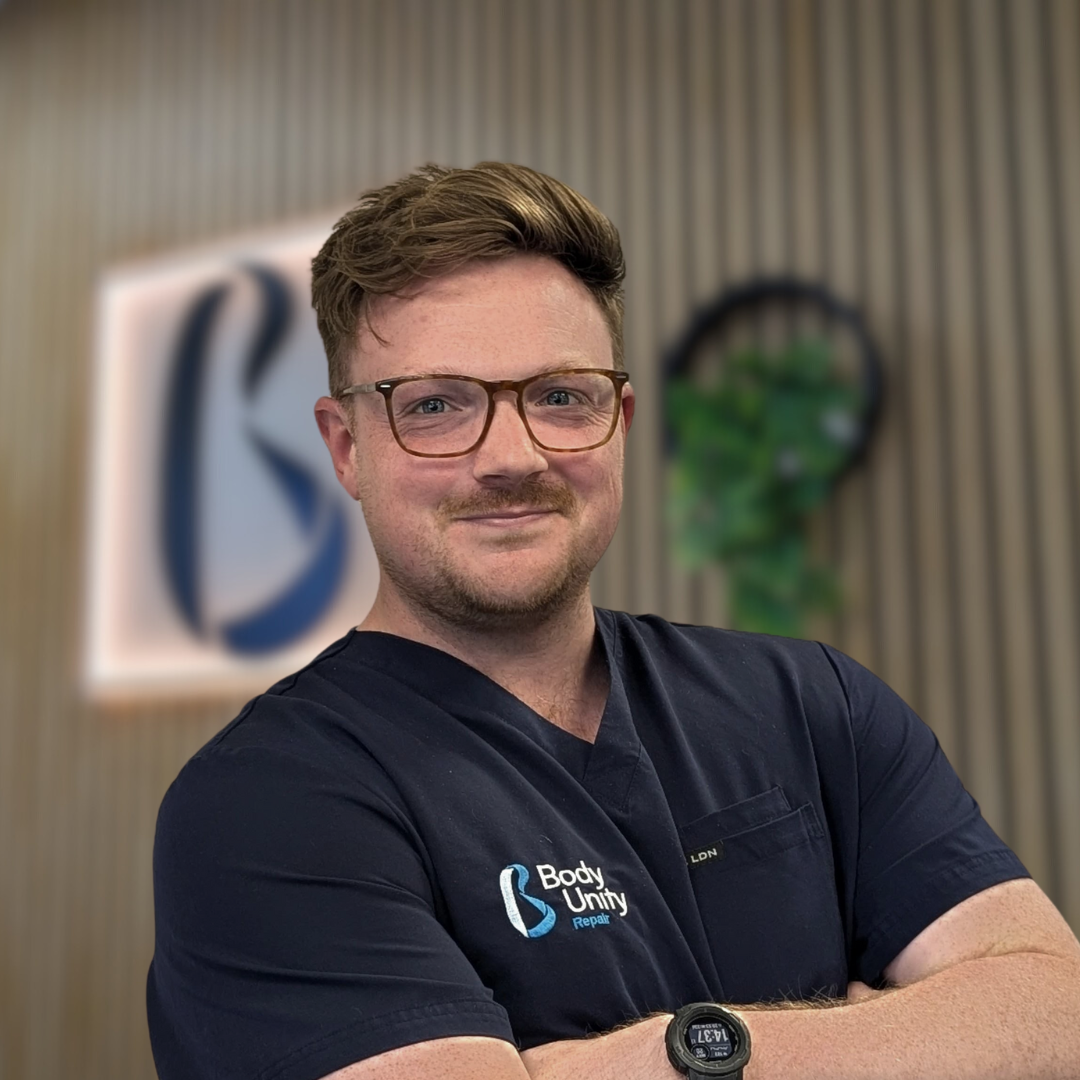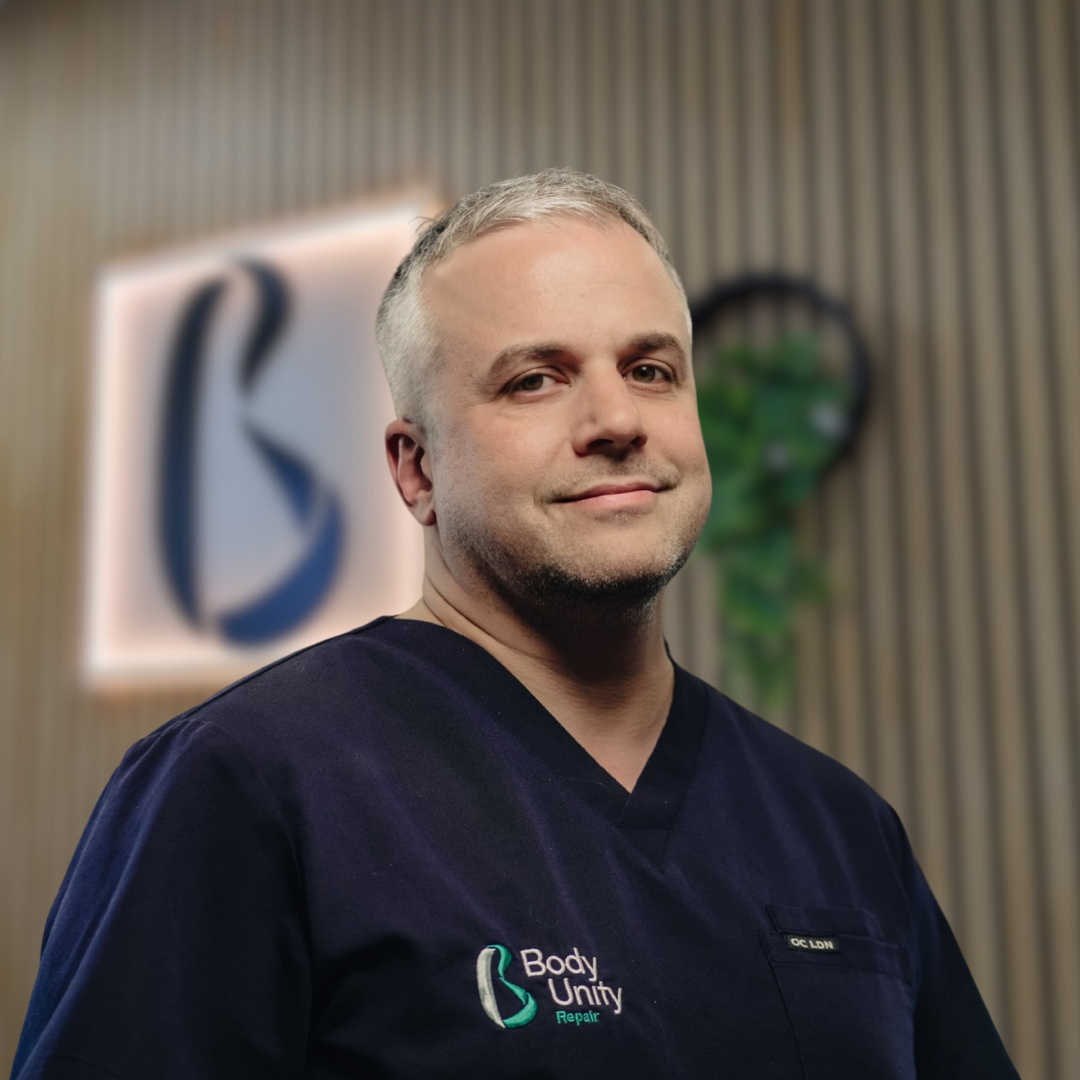The science behind it
Extracorporeal Shockwave Therapy treatment (ESWT) is a clinically-proven treatment in which a device is used to pass energy sound waves (purely mechanical, not electric) at a set frequency, which pass through the skin, to the affected tissue to start helping it to heal.
Treatment initiates a pro-inflammatory response in the affected tissue that is being treated, in which the body responds by increasing the blood circulation and metabolism in the affected area, which accelerates the body’s own healing processes and provide pain relief. The shockwaves help break down injured tissues and calcifications.
Shockwave Therapy is approved by The National Institute for Health & Care Excellence (NICE).

WHAT TO EXPECT DURING A SHOCKWAVE THERAPY TREATMENT
We will start the healing process from the very first visit. The initial Shockwave Therapy treatment includes a thorough consultation with assessment. This first session lasts around 45 minutes and you will experience what Shockwave feels as we work on the treatment area. Subsequent Shockwave Therapy follow-on sessions last just 30 minutes, so they can easily fit into your busy lifestyle. Here’s what to expect:
First visit (or existing client but new to Shockwave Therapy)
First visit (or existing client but new to Shockwave Therapy)
If you’re new to Body Unity, or it’s your first time having Shockwave Treatment at the clinic, we will begin your first 45-minute session with a thorough discussion about your medical history, lifestyle, and current symptoms/concerns. This is a great opportunity for you to ask further questions you might have about the process.For existing Shockwave Therapy clients, we will review and assess your progress, and update your records to ensure the latest information is recorded, and that we’re on track to help you out of pain.
Physical Assessment
We will ensure that prior to your first Shockwave Therapy treatment with us, that your condition is suitable for treatment, and there are no contraindications (e.g. pregnancy or acute inflammation).
Treatment Process
After either the Initial Consultation or catch-up, we’ll begin using the Shockwave machine. Only the body area being targeted will be exposed.
Depending on the area of your body being treated, you may be seated or lying down, and only the area being treated will be exposed.
Ultrasound gel will be applied to the treatment area; your practitioner will start using the Shockwave machine and will re-assess your discomfort levels to ensure the right frequency is being met, and we can start the natural healing process.
Aftercare / Follow-up Sessions
As most injuries or pain conditions suitable for Shockwave Therapy take several treatments to improve, we will chat to you about the best plan of action for your condition as we advance.
We will also ensure you’re fully aware of any potential side effects that may occur 1-2 days post-treatment so you know what to expect between treatments.
Frequently Asked Questions
Everything you need to know about Shockwave Therapy Treamtment
We can help a range of chronic pain and injuries, including:
• Plantar Fasciitis
• Tennis Elbow & Golfers Elbow
• Frozen Shoulder
• Myofascial Trigger Points
• Achilles Tendon issues/Achilles Tendinopathy
• Patellar Tendinopathy
• Hamstring Tendinopathy
• Shin Splints
• Lateral Hip Pain
• Sports Injuries…and more
During treatment, we will work with you to ensure there is bearable discomfort during the use of the Shockwave session. Each treatment will never go higher than 5-8/10 on your pain threshold, so ensure we can get the maximum benefit from it. Some mild-to-moderate yet bearable discomfort may be felt both during – and after – the session, but pain should reduce after 1-3 days post-treatment.
Treatment is suitable for most people experiencing chronic pain or injuries (pain that has lasted more than 6 weeks, or has been on-and-off for longer). It is also recommended to those who have not had a reduction in pain with the use of conservative treatment, such as Physiotherapy, soft-tissue work, or those given orthotics by their podiatrists.
Treatment is suitable for most people experiencing chronic pain or injuries (pain that has lasted more than 6 weeks, or has been on-and-off for longer). It is also recommended to those who have not had a reduction in pain with the use of conservative treatment, such as Physiotherapy, soft-tissue work, or those given orthotics their podiatrists.
Typically, patients feel a marked improvement in their pain and/or range-of-motion after 3-8 treatments. However, the exact number of Shockwave sessions depends on the area being treated, and the complexity of your issue. This will be discussed with you by your practitioner at your first visit.
Once your number of Shockwave sessions have finished, it’s recommended to continue with maintenance sessions to ensure we keep the blood flow to the area and keep the condition at bay. Again, frequency of these maintenance session will be discussed with you; typically patients return once every 2-3 months for a follow-on.
Depending on your issue, many report either zero side effects, or an improvement to their pain and range-of-motion after the first treatment. Others may get some increased tenderness or pain, redness or some small swelling to the treated area, but the majority of these side-effects will reduce after 3-7 days post-treatment.
Shockwave Therapy is only available on the NHS for those whose chronic pain has failed to improve at all by conventional methods (i.e. NHS Physiotherapy treatment or other methods given by medical practitioners).
This, coupled with long NHS waitlists for both Physiotherapy and Shockwave Therapy treatment, lead to many to seek private Shockwave Therapy sessions, where we can start the healing process straight away.
All of our Shockwave Therapy practitioners are highly-qualified musculoskeletal experts in theirown right, and have extensive training in the use of Shockwave Therapy machines.
You can be rest assured that you’re in safe, knowledgeable hands, and we want you to feel comfortable to ask us any questions before, during and after treatment (which we’ll be more than happy to answer).
Book you Consultation Session with:
Any member of our team can assess your suitability for Shockwave Therapy in any other appointment type, or a dedicated Shockwave Consultation Appointment.



